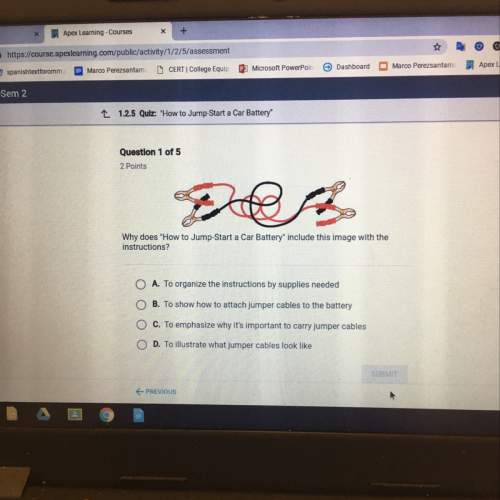The Charge of the Light Brigade
Alfred Tennyson, 1st Baron (1809–92)
HALF a league, hal...

The Charge of the Light Brigade
Alfred Tennyson, 1st Baron (1809–92)
HALF a league, half a league,
Half a league onward,
All in the valley of Death
Rode the six hundred.
"Forward, the Light Brigade! 5
Charge for the guns!" he said:
Into the valley of Death
Rode the six hundred.
"Forward, the Light Brigade!"
Was there a man dismay'd? 10
Not tho' the soldier knew
Some one had blunder'd:
Theirs not to make reply,
Theirs not to reason why,
Theirs but to do and die: 15
Into the valley of Death
Rode the six hundred.
Cannon to right of them,
Cannon to left of them,
Cannon in front of them 20
Volley'd and thunder'd;
Storm'd at with shot and shell,
Boldly they rode and well,
Into the jaws of Death,
Into the mouth of Hell 25
Rode the six hundred.
Flash'd all their sabres bare,
Flash'd as they turn'd in air
Sabring the gunners there,
Charging an army, while 30
All the world wonder'd:
Plunged in the battery-smoke
Right thro' the line they broke;
Cossack and Russian
Reel'd from the sabre-stroke 35
Shatter'd and sunder'd.
Then they rode back, but not
Not the six hundred.
Cannon to right of them,
Cannon to left of them, 40
Cannon behind them
Volley'd and thunder'd;
Storm'd at with shot and shell,
While horse and hero fell,
They that had fought so well 45
Came thro' the jaws of Death,
Back from the mouth of Hell,
All that was left of them,
Left of six hundred.
When can their glory fade? 50
O the wild charge they made!
All the world wonder'd.
Honor the charge they made!
Honor the Light Brigade,
Noble six hundred! 55
This poem is an example of a poem.
limerick
narrative
parody
haiku
lyric

Answers: 2


Another question on English

English, 22.06.2019 00:30
Excerpted from "the children's hour" by henry wadsworth longfellow a whisper, and then a silence: yet i know by their merry eyes they are plotting and planning together to take me by surprise. a sudden rush from the stairway, a sudden raid from the hall! by three doors left unguarded they enter my castle wall! look carefully at the lines above. a poem with this particular rhyme scheme is best read a. line by line. b. with long pauses. c. phrase by phrase. d. with a strong rhythm.
Answers: 2

English, 22.06.2019 01:00
Read the quotation from "an occurrence at owl creek bridge." and now he became conscious of a new disturbance. striking through the thought of his dear ones was a sound which he could neither ignore nor understand, a sharp, distinct, metallic percussion like the stroke of a blacksmith’s hammer upon the anvil; it had the same ringing quality. he wondered what it was, and whether immeasurably distant or near by—it seemed both. its recurrence was regular, but as slow as the tolling of a death knell. he awaited each stroke with impatience and—he knew not why—apprehension. the intervals of silence grew progressively longer, the delays became maddening. with their greater infrequency the sounds increased in strength and sharpness. they hurt his ear like the thrust of a knife; he feared he would shriek. what he heard was the ticking of his watch. which best describes the effect of the narration in the excerpt? it suggests that the man being executed feels tranquil and at peace. it suggests that the narrator is sympathetic to the man being executed. it suggests that the plot will become less tense as the story continues. it suggests that the story will become more intense and mysterious.
Answers: 1


English, 22.06.2019 02:40
Read the passage from sugar changed the world. sugar is a taste we all want, a taste we all crave. people throughout the planet everywhere have been willing to do anything, anything at all, to get that touch of sweetness. we even know exactly how thrilling it was to taste sugar for the first time. when the lewis and clark expedition met up with the shoshone, who had little previous contact with old world products, sacagawea gave a tiny piece of sugar to a chief. he loved it, saying it was "the best thing he had ever tasted." sugar created a hunger, a need, which swept from one corner of the world to another, bringing the most terrible misery and destruction, but then, too, the most inspiring ideas of liberty. sugar changed the world. we begin that story with a man who could never know enough. how does the conclusion of the prologue support the authors’ purpose? select two options. it introduces the topic that will be addressed next. it provides information about the authors. it states why the topic is relevant to readers. it cites sources the authors used in the text. it explains how the authors came to study the subject.
Answers: 1
You know the right answer?
Questions








Chemistry, 13.12.2021 06:50

Mathematics, 13.12.2021 06:50

Mathematics, 13.12.2021 06:50


Mathematics, 13.12.2021 06:50

English, 13.12.2021 06:50

Mathematics, 13.12.2021 06:50



Biology, 13.12.2021 07:00


English, 13.12.2021 07:00




